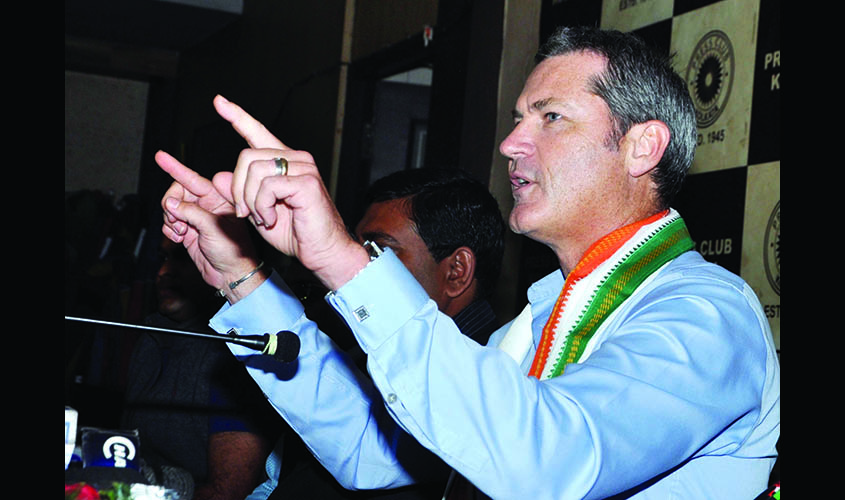Taufel wants cricketers to show restraint and not get hyper-active both on and off the field. He has explained lessons of his life and blended it with real life examples.
New Delhi: It was around the 2003 ICC World Cup ESPN Star Sports tried working out interesting formats with cricketers from across the world, encouraging them to walk into the studios or go to exotic locations, or put a chef’s cap to try their hands at cooking. The cricketers loved it, Brett Lee played the guitar, Dean Jones turned Uncle Dino, and Mathew Hayden cooked a whole chicken within 35 minutes and ate it alone. But umpires—both current and retired—were never a part of these special shows. I tried my luck with former West Indies captain Clive Lloyd during a show at the Oxford University; he politely declined and wanted me to buy him some beer. I walked for almost a mile and got him a pitcher. Lloyd was happy, he opened up and told me why it was important for umpires, fourth umpire and match commissioners or guides not to talk. “We are decision makers, our decisions are followed by the cricketers. An umpire is almost like a judge, he should not talk.”
I remembered his words for life. Simon Taufel, five times ICC Umpire of the Year, never talked while he officiated matches. Once retired, he has talked and written a book on his life and times and also blended it with some management gyaan. He has a foreword from the irresistible Sachin Ramesh Tendulkar; it’s like pushing in an IPO and get it oversubscribed within seconds. No wonder the Pan Macmillan book is flying fast off the shelves.

Transferable Skills to Be the Best You Can Be
Author: Simon Taufel
Publisher: Pan Macmillan
Price: Rs 450
Pages: 288
So what does Taufel want cricketers to follow? He wants cricketers to show restraint and not get hyper-active both on and off the field. He talks about many incidents, I liked the one where he was in a van following the Sri Lankan cricketers on way to the imposing Gaddafi Stadium in Lahore on 3 March 2009. It was a balmy morning till all hell broke loose and terrorists started shooting at anything and everything, injuring some and killing the driver of the van in which Taufel was travelling. “It must have been the longest five to ten minutes of my life,” writes Taufel. Cricket history changed for ever in Pakistan, the nation was instantly blacklisted and declared a no-go zone by the ICC. But the incident, writes Taufel, helped him understand the meaning of timing, the meaning of courage and the meaning of life.
Books that play to the gallery and to the ego of superstars are awfully boring to read. There are many like these in India which keep saying “Oh Sachin, Oh Sachin, Oh Sachin” or “Dada, Dada, Dada the Great”. These books say nothing, nor do their big buck launches. But this one has broken all the barriers. Taufel has explained lessons of his life and blended it very well with real life examples. This has worked because the world is now seeped in social media, instant news and instant headlines are making news. The long form is actually dying despite best of efforts from the publishers. Look at the way Taufel has written the book. I loved the lines: Make mistakes before the exam, Look after your health so that you can look after and serve others, Actively plan your rest, relaxation and recovery & Focus on the “Why”. Have you ever seen a cricket umpire talking like this? Taufel has made it clear that umpires are not at all boring men, they have a life and they know what to do and what not at the right time.
The author talks about a match in Multan—fortunately I was there too and I remember distributing sweets to everyone in the press box because it was a Bengali New Year’s Day—where he found his partner, umpire David Shepherd taking a nap after a heavy, hot, sweltering match. Taufel went for his fitness
The writer is not afraid to talk about his bad days in 2004 when he committed a series of errors, and also he remembers the 2011 ICC World Cup final watched by a billion plus nation and why and how the pressures of the match were immense, immense, immense. That’s the quality of a great umpire, a great human being and a great book.

